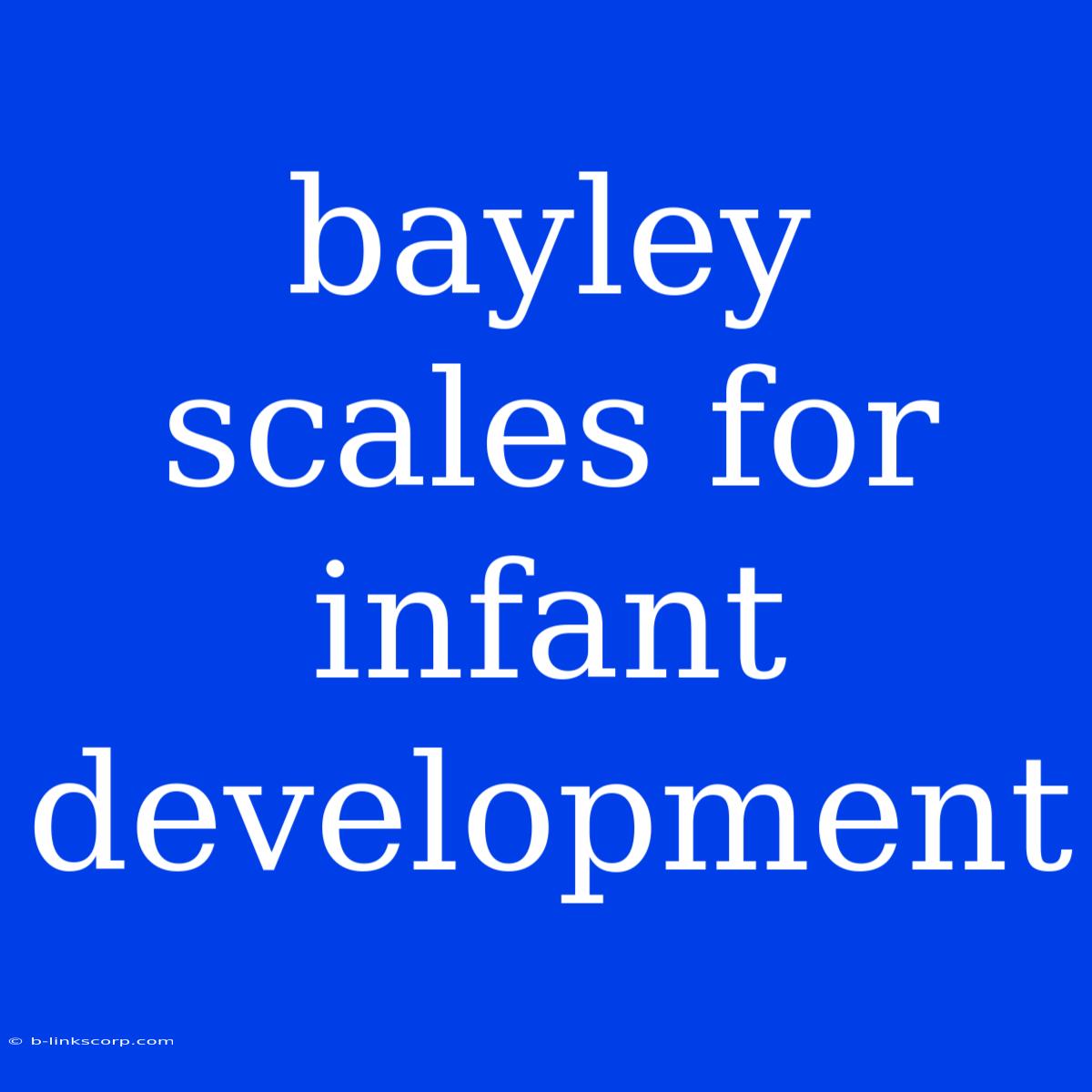Bayley Scales for Infant Development: A Comprehensive Guide to Early Development
The Bayley Scales for Infant and Toddler Development are a widely used standardized test that assesses the development of infants and toddlers aged 1 to 42 months. Developed by Nancy Bayley, these scales offer a comprehensive evaluation of a child's cognitive, language, motor, adaptive, and socio-emotional skills. The Bayley Scales are used to identify developmental delays or strengths, monitor developmental progress, and inform intervention plans.
What are the Bayley Scales?
The Bayley Scales are comprised of five distinct scales, each focusing on a specific developmental domain:
1. Cognitive Scale: This scale assesses a child's ability to solve problems, understand concepts, and learn new information. It includes tasks such as object permanence, receptive vocabulary, and spatial reasoning.
2. Language Scale: This scale measures a child's language comprehension and production. It assesses aspects like receptive vocabulary, expressive language, and verbal reasoning.
3. Motor Scale: This scale evaluates a child's gross and fine motor skills, including activities such as walking, crawling, grasping objects, and drawing.
4. Adaptive Behavior Scale: This scale measures a child's ability to adapt to their environment and manage daily living skills. It includes areas such as self-care, communication, and social interaction.
5. Socio-Emotional Scale: This scale focuses on a child's emotional development, including aspects like social interaction, emotional regulation, and temperament.
Why are the Bayley Scales Used?
The Bayley Scales are used for a variety of purposes, including:
- Identifying developmental delays: The scales can help identify children who are experiencing developmental delays in one or more areas.
- Monitoring developmental progress: These scales can track a child's progress over time, allowing professionals to see how their development is evolving.
- Developing intervention plans: The results of the Bayley Scales can inform the development of individualized intervention plans to address any identified developmental concerns.
- Research purposes: The Bayley Scales are frequently used in research studies to explore various aspects of child development.
Who administers the Bayley Scales?
The Bayley Scales are typically administered by trained professionals, such as developmental psychologists, pediatricians, or other specialists in child development. The administration process involves observing the child's performance on various tasks, scoring their responses, and interpreting the results.
Understanding the Bayley Scores
The Bayley Scales generate a Developmental Quotient (DQ) for each of the five domains, as well as a Mental Development Index (MDI) and a Psychomotor Development Index (PDI). These scores are based on the child's performance relative to other children of the same age.
DQ scores: These scores range from 0 to 100, with an average score of 100. Scores below 85 may indicate developmental delays, while scores above 115 may suggest advanced development.
MDI and PDI scores: These scores provide a broader picture of a child's cognitive and motor development, respectively. They can be used to identify specific areas of strength or weakness.
Limitations of the Bayley Scales
While the Bayley Scales are a valuable tool for assessing infant and toddler development, it's essential to consider their limitations:
- Snapshot of development: The scales provide a snapshot of a child's development at a specific point in time, and it's important to remember that development is an ongoing process.
- Cultural and environmental factors: Scores can be influenced by cultural and environmental factors that are not always accounted for in the assessment.
- Limited predictive power: While the scales can identify developmental delays, they do not always accurately predict future development.
Conclusion
The Bayley Scales for Infant and Toddler Development provide valuable information about a child's early development. By identifying strengths and weaknesses, these scales can empower parents and professionals to provide targeted support and interventions to help children reach their full potential. However, it's crucial to consider the limitations of the scales and use them in conjunction with other assessments and observations to gain a comprehensive understanding of a child's development.

